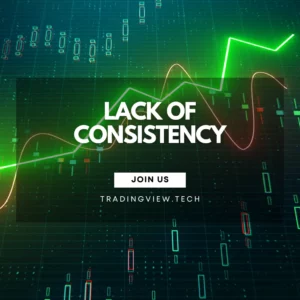Selecting the right broker is one of the most important decisions a trader can make. Whether you are a beginner or an experienced investor, your broker will significantly impact your trading experience, affecting everything from execution speed to the security of your funds. A reliable broker ensures a safe and efficient trading environment, while a poor choice can lead to unnecessary costs, technical issues, or even financial losses.
With so many options available, it’s essential to evaluate brokers based on critical factors such as regulation, fees, and trading platforms. This article will guide you through the key aspects to consider, helping you make an informed decision that aligns with your trading goals.
Regulation and Security – Ensuring a Safe Trading Environment
The first and most crucial factor when choosing a broker is regulation. A well-regulated broker operates under strict guidelines designed to protect traders from fraud and ensure transparency. Regulatory bodies such as the U.S. Securities and Exchange Commission (SEC), the UK’s Financial Conduct Authority (FCA), and the Australian Securities and Investments Commission (ASIC) set standards that brokers must follow to maintain their licenses.
When evaluating a broker, check if it is registered with a reputable financial authority. A regulated broker offers key protections, such as:
- Fund security: Client funds are held in segregated accounts, separate from the broker’s operational funds.
- Deposit insurance: Some regulatory bodies provide compensation schemes in case of broker insolvency.
- Fair trading practices: Regulated brokers must follow rules that prevent price manipulation and ensure transparent execution.
- Dispute resolution: Traders can file complaints with regulators if they experience unfair treatment.
It’s also essential to verify a broker’s regulatory claims by checking the official website of the financial authority. Some unregulated brokers may falsely advertise regulatory compliance, putting traders at risk.
Choosing a broker with strong regulatory oversight provides peace of mind, ensuring that your funds and personal information remain secure.
Fees and Commissions – Understanding the Cost of Trading
Trading costs can significantly impact profitability, making it essential to understand the fee structure of a broker before opening an account. Brokers charge different types of fees, including spreads, commissions, and hidden costs that traders may overlook.
The main types of trading fees include:
- Spreads: The difference between the bid and ask price. Tight spreads are preferable for cost-efficient trading.
- Commissions: Some brokers charge a fixed fee per trade, while others offer commission-free trading with wider spreads.
- Deposit and withdrawal fees: Brokers may charge fees for transactions, which can reduce overall profitability.
- Inactivity fees: Some platforms impose charges if an account remains inactive for a specific period.
It’s important to compare brokers based on their pricing model. Market makers typically offer commission-free trading with wider spreads, while ECN (Electronic Communication Network) brokers provide direct market access with lower spreads but charge commissions per trade.
Additionally, traders should consider swap fees, which apply to positions held overnight. These fees vary depending on the asset class and interest rate differentials. Understanding all potential costs helps traders avoid unexpected expenses and choose a broker that aligns with their budget and trading strategy.
Trading Platform and Tools – Finding a Broker with the Right Features
A broker’s trading platform is the primary tool for executing trades, analyzing markets, and managing accounts. An intuitive, reliable, and feature-rich platform enhances the trading experience, while a poorly designed one can lead to missed opportunities and frustration.
When evaluating a broker’s platform, consider the following:
- User experience: The platform should have a clean interface, fast execution, and easy navigation.
- Technical analysis tools: A good platform provides advanced charting capabilities, indicators, and drawing tools.
- Order execution speed: Delays in trade execution can lead to slippage, affecting profitability.
- Mobile and desktop compatibility: A broker should offer both web-based and mobile trading options for flexibility.
Popular trading platforms include MetaTrader 4 (MT4), MetaTrader 5 (MT5), and cTrader, known for their robust features and customization options. Some brokers also offer proprietary platforms with unique tools tailored to specific trading styles.
Before committing to a broker, traders should test the platform using a demo account to assess its functionality and execution speed. A well-designed trading platform with essential tools and smooth performance can make a significant difference in achieving trading success.



